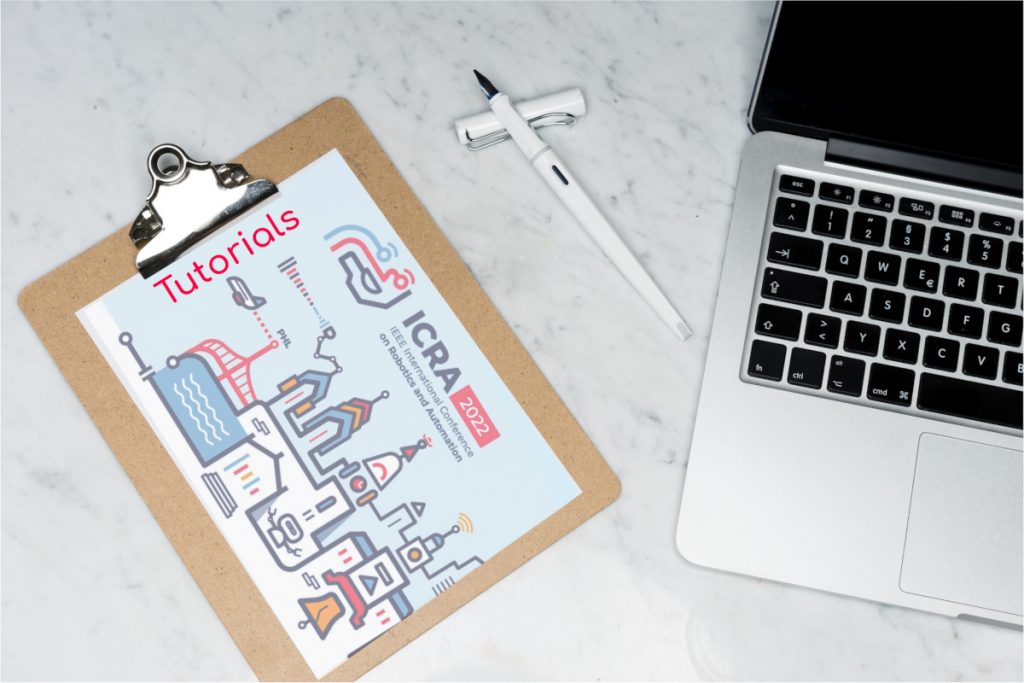
Robohub.org
A newcomer’s guide to #ICRA2022: Tutorials

I believe that one of the best ways to get the training you need for a job market in robotics is to attend tutorials at conferences like ICRA. Unlike workshops where you might listen to some work-in-progress, other workshop paper presentations and panel discussions, tutorials are exactly what they sound like. They aim to give you some hands-on learning sessions on technical tools/skills with specific learning objectives.
As such, most tutorials would expect you to come prepared to actively participate and follow along. For instance, the “Tools for Robotic Reinforcement Learning” tutorial expects you to come knowing how to code in python and have basic knowledge of reinforcement learning because you’ll be expected to use those skills/knowledge in the hands-on sessions.
There are seven tutorials this year.
Those interested in the intersection of machine learning and robotics (yes, yes, robotics and AI don’t refer to the same things, even if many people think they are the same) might find the following tutorials interesting.
- Tools for Robotic Reinforcement Learning
- Data-driven revolution in autonomous driving
- Learning Motion Control for Mobile Robot Navigation – A Tutorial
For those who are more into robots that navigate around our environment, the NavAbility Tutorial Workshop on Non-Gaussian SLAM and Computation is a series of hands-on tutorials that would be highly interesting for you. Be prepared to come with your own laptop to go from getting to know non-gaussian SLAM to solve your SLAM problems.
Meanwhile, roboticists who are more hardware and design-oriented might find the Jamming in Robotics: From Fundamental Building Blocks to Robotic Applications tutorial useful. By “jamming”, they don’t mean musicians coming together to create cool music together — I only found this out through the tutorial website. It refers to the way robots can grab items without needing to have traditional, fingered grippers.
The Tutorial on Koopman Operator and Lifting Linearization: Emerging Theory and Applications of Exact Global Linearization would be interesting for anyone interested in mathy/control/theory side of robotics. Koopman operators have been the buzz in the robotics community recently, and the tutorial is sure to give you the in-depth look at what the buzz is all about.
Lastly, the How to write an R-article and benchmark your results tutorial is one to watch for. It will tell you all about publishing reproducibility-friendly articles, and emphasize the usefulness of doing research in reproducible ways.
tags: c-Events, icra2022





